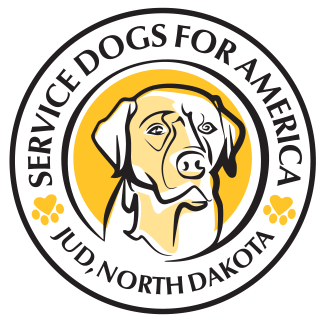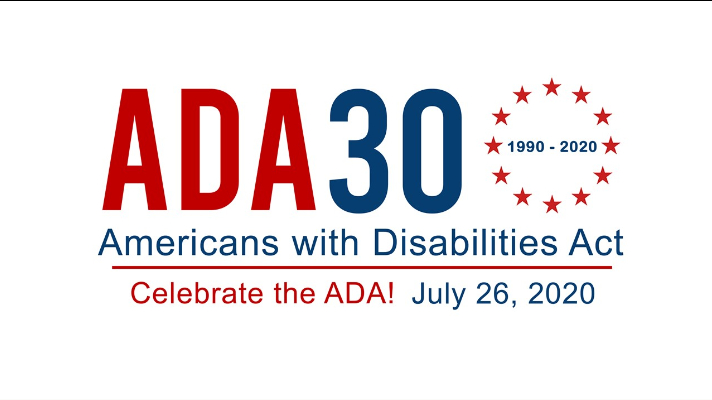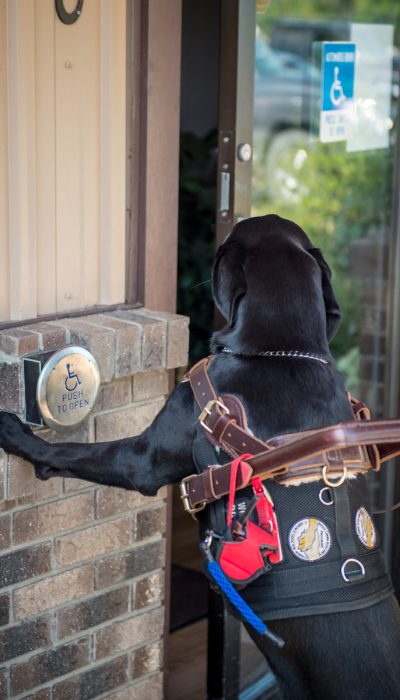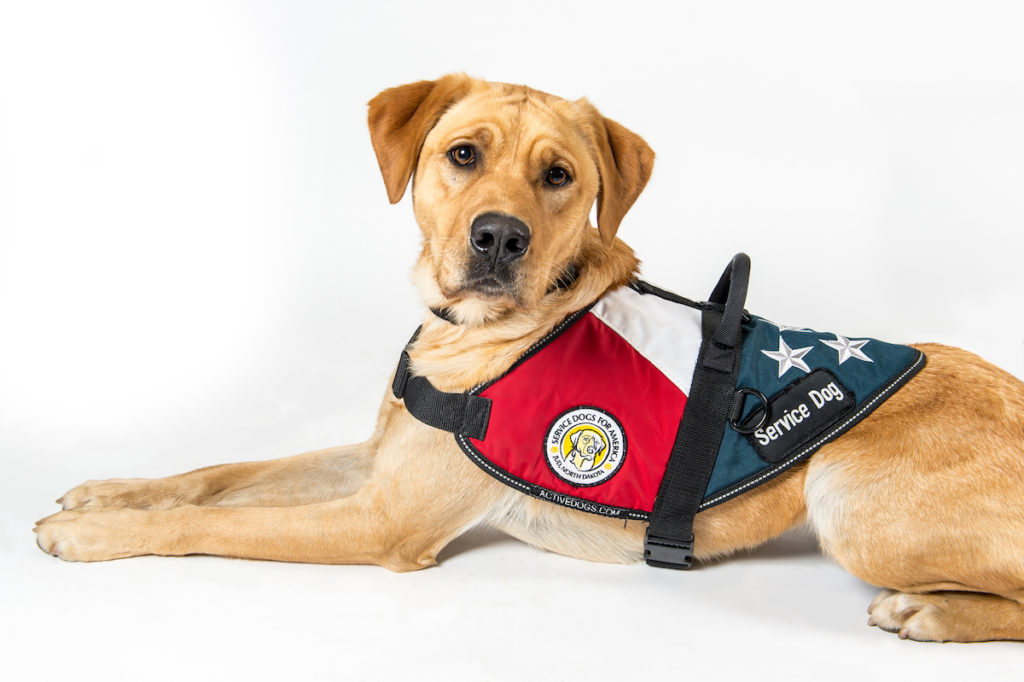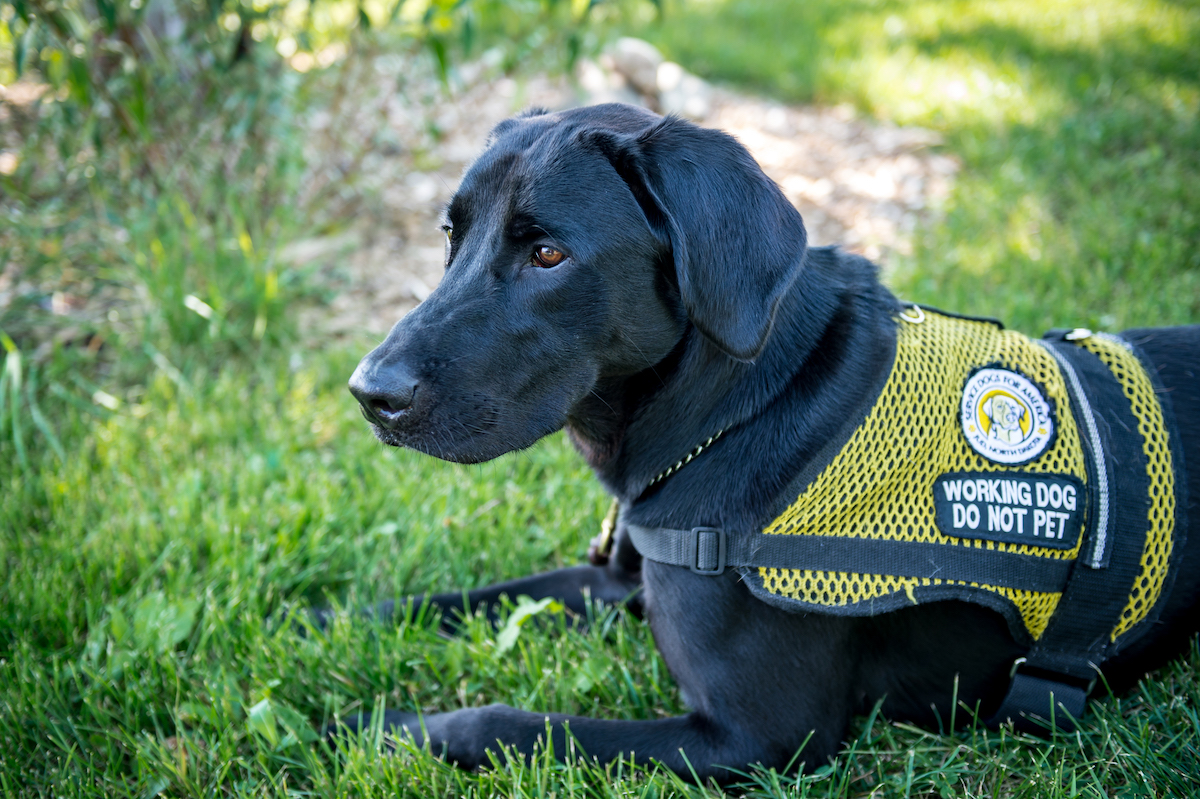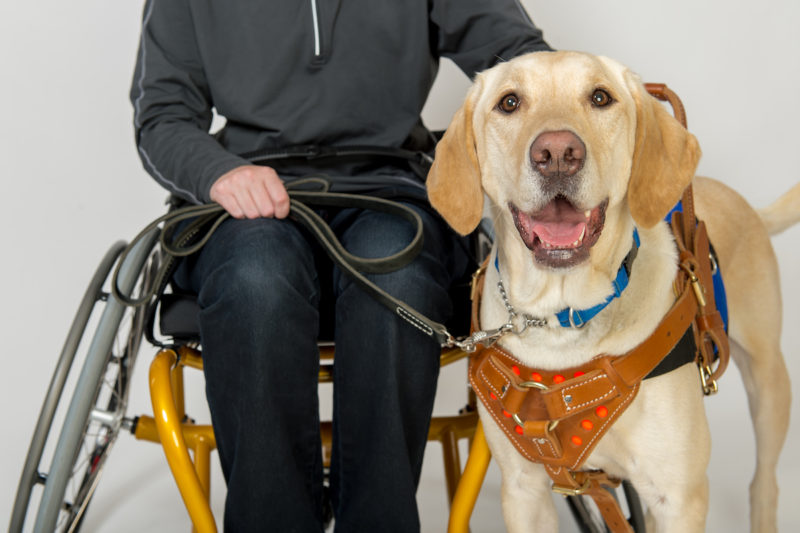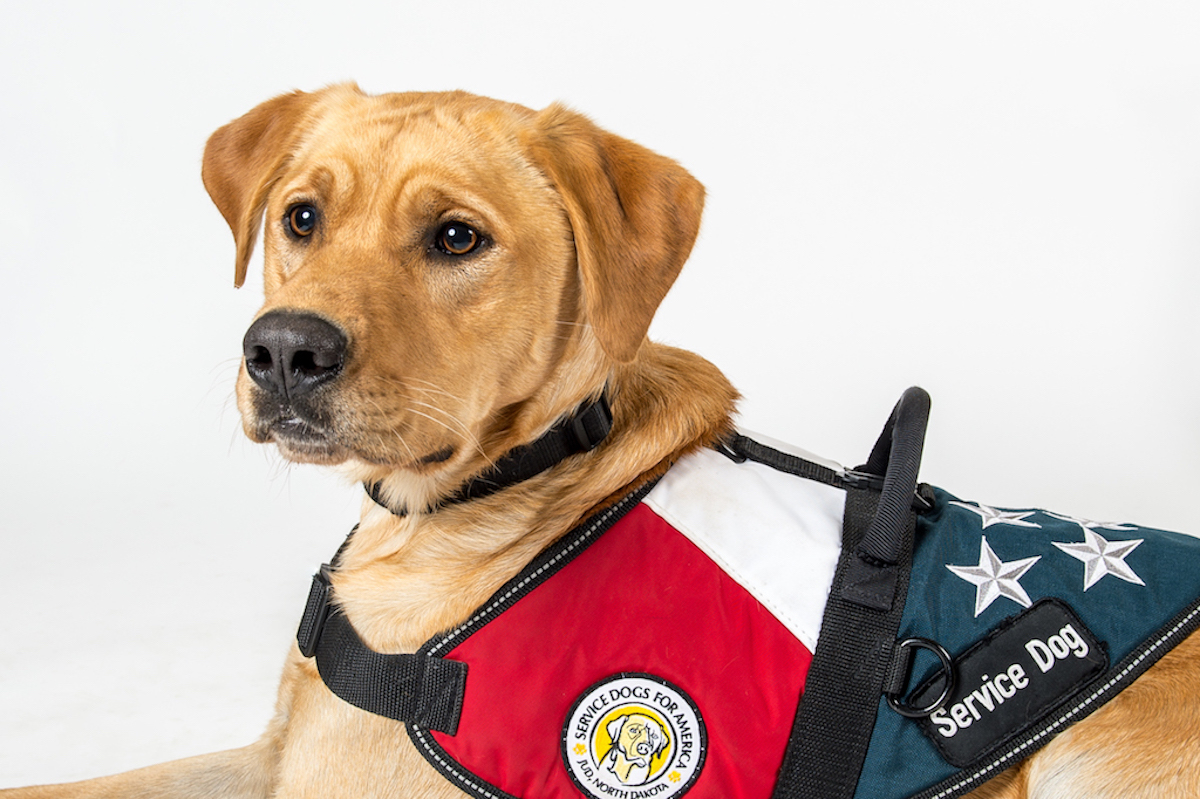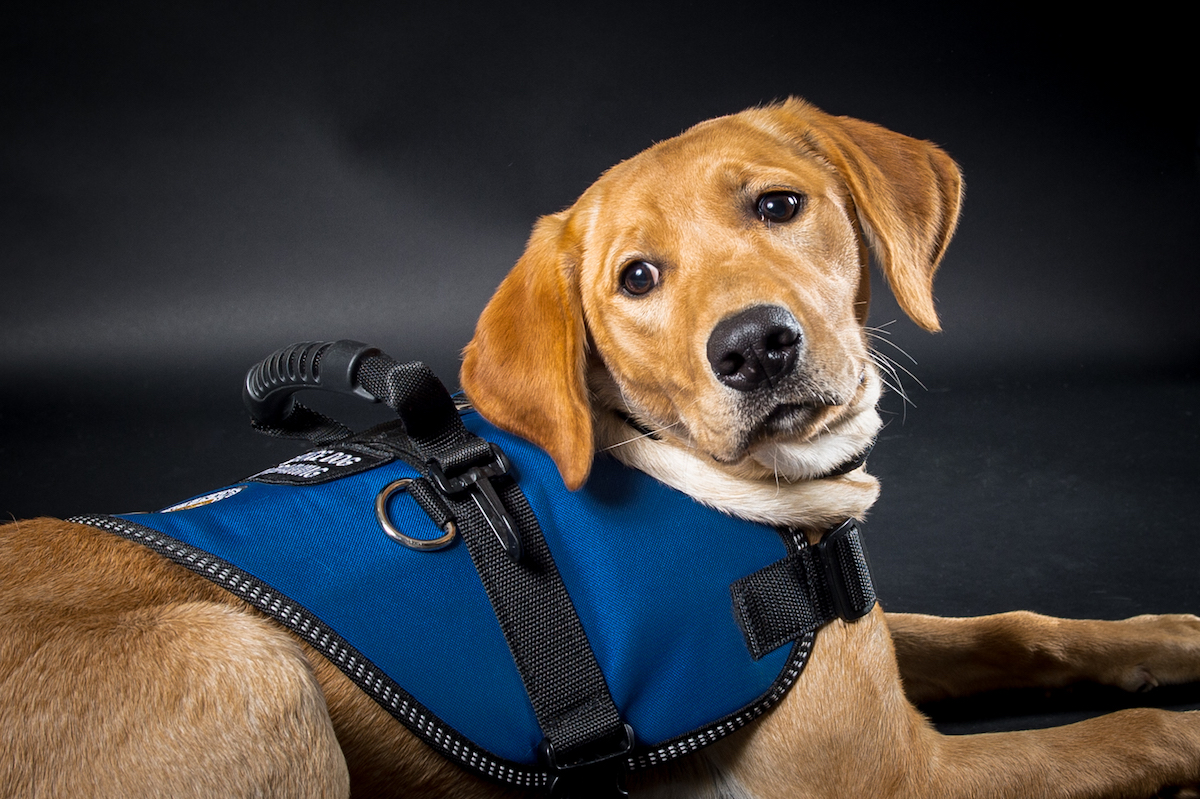PTSD
PTSD Service Dogs
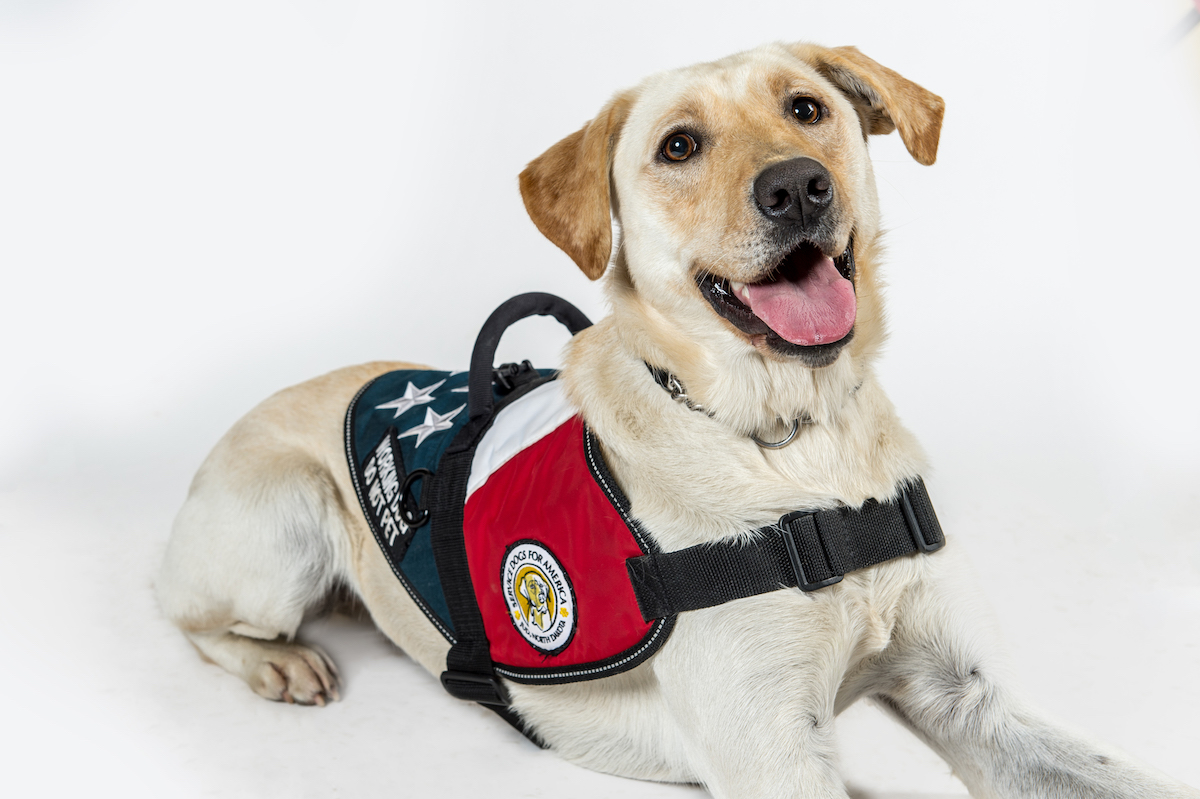
PTSD Service Dogs
SDA proudly accepts applications from both military and non-military individuals with Post Traumatic Stress Disorder (PTSD).
SDA is committed to working together with the individual and their service dog to increase physical, emotional, and social self-sufficiency.
Tasks May Include:
- Providing psycho-emotional grounding by nudging, pawing, and leaning
- Waking partner from night terrors/nightmares
- Distracting from an event or specific maladaptive behavior
- Bringing medication or other needed resources
- Creating personal space in a non-aggressive manner in crowded areas
- Leading to a building exit when partner is experiencing an anxiety or panic attack
- Finding another person in the house or hitting an alert button to signal for help
A trained PTSD service dog is a tool and is not intended to substitute or replace current therapeutic or medication treatment plans.
